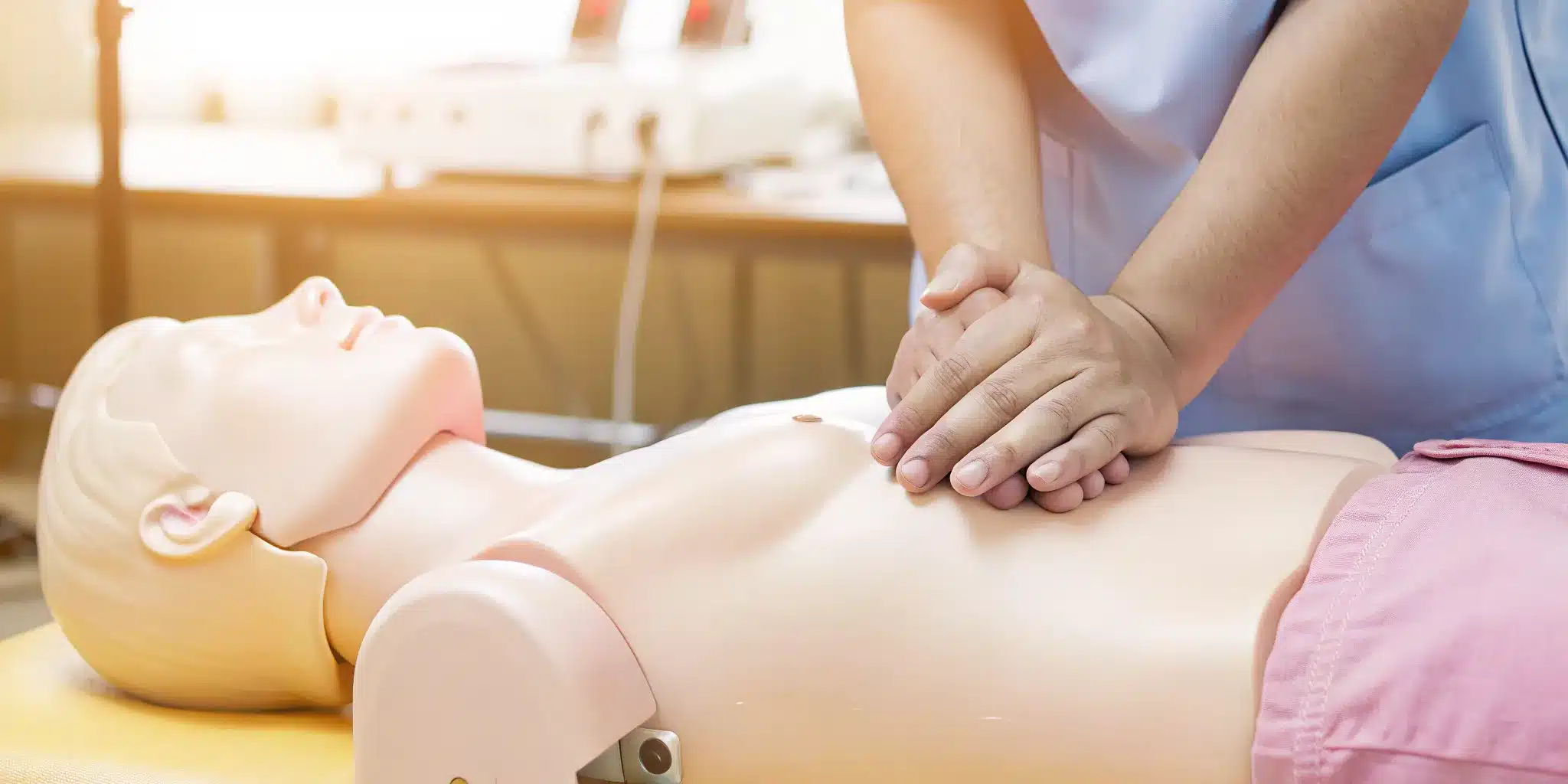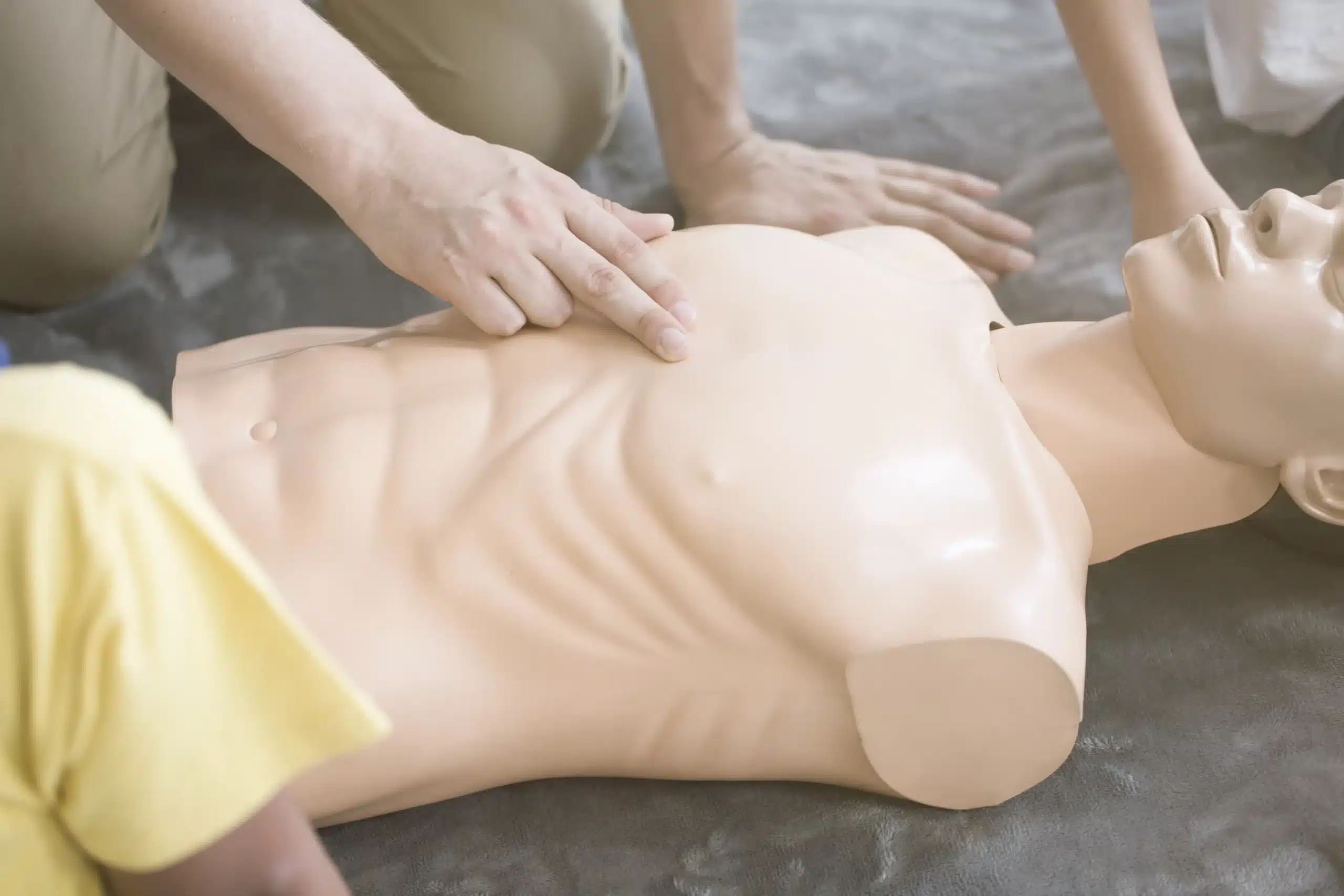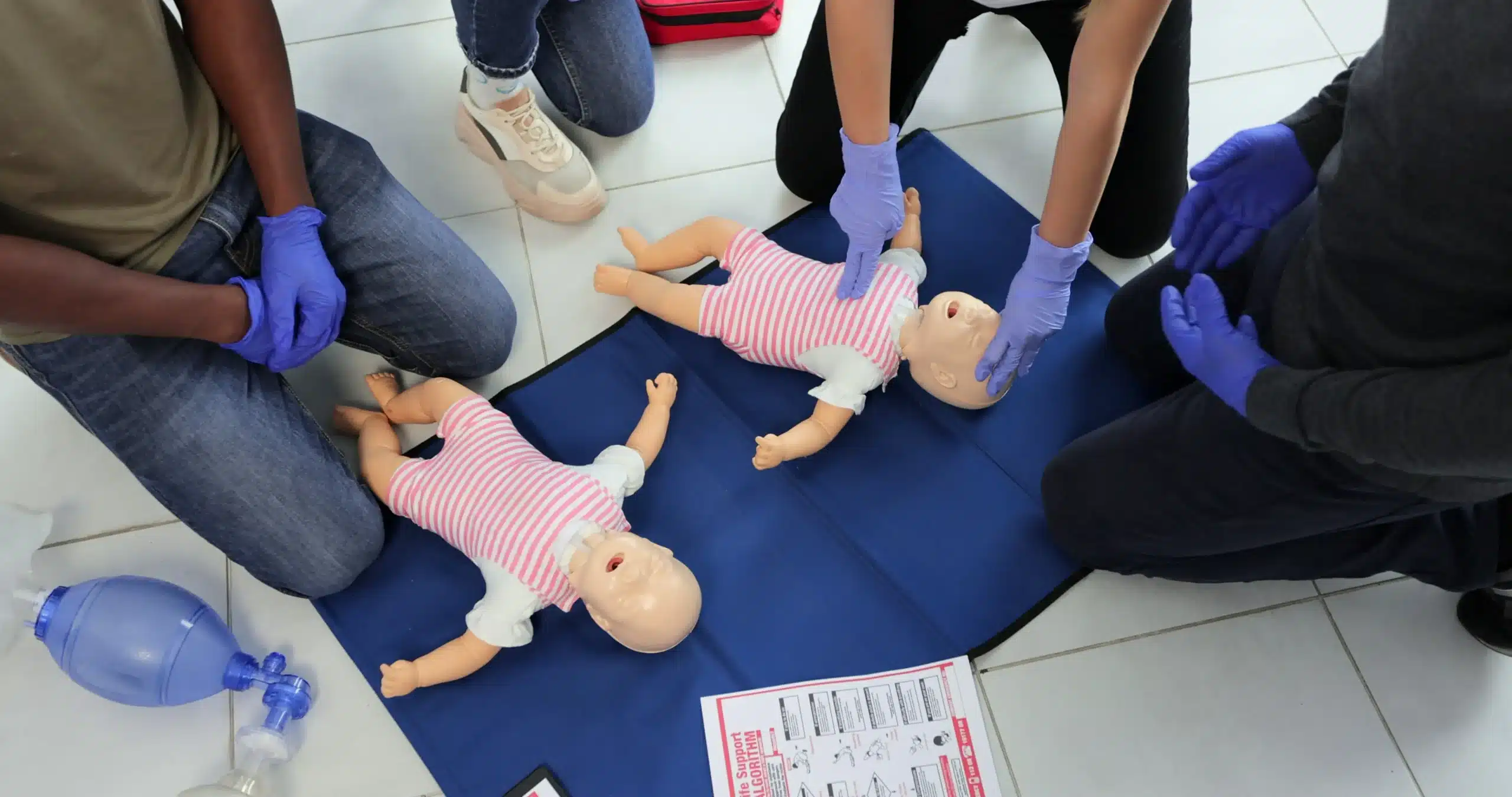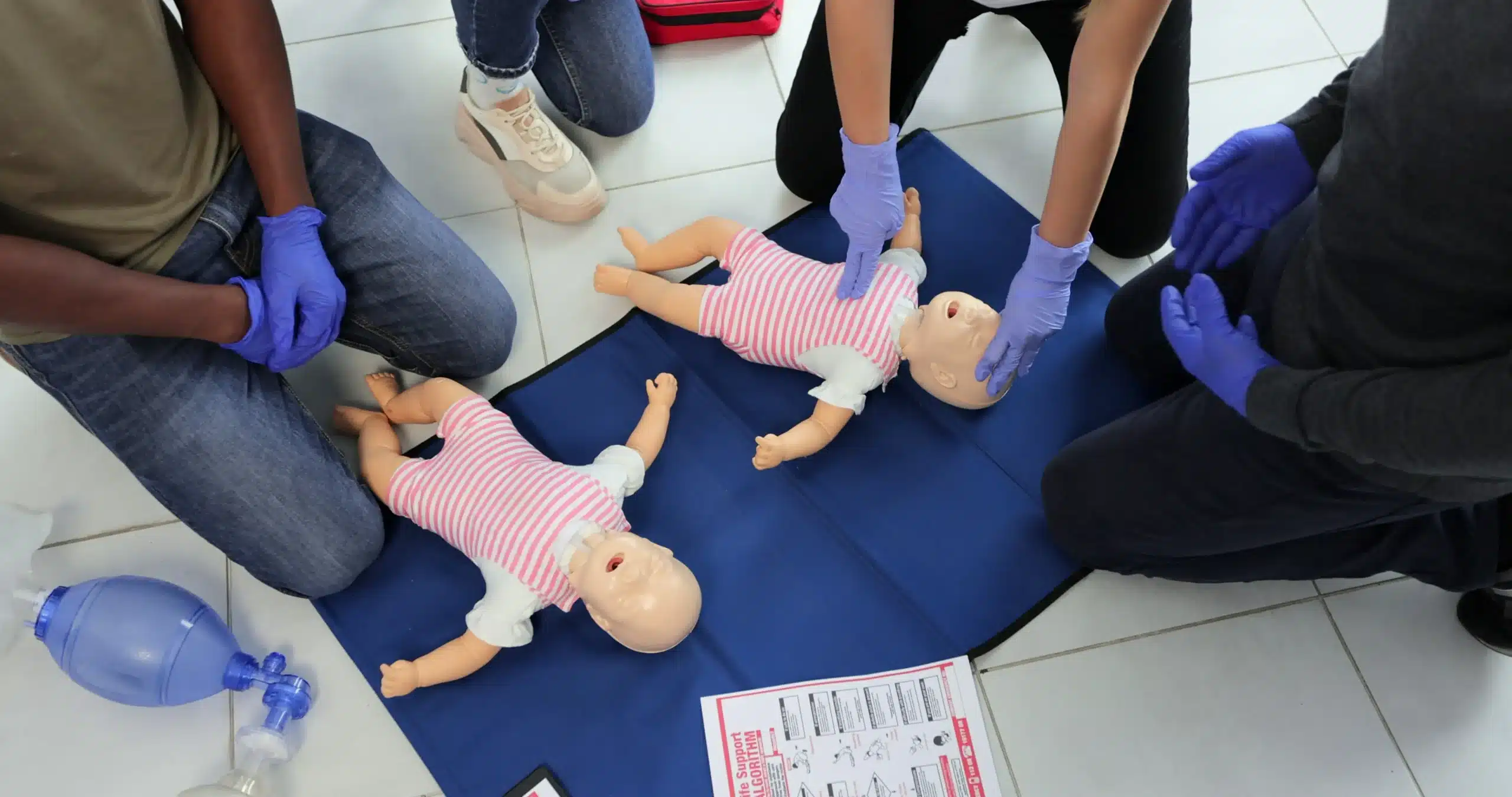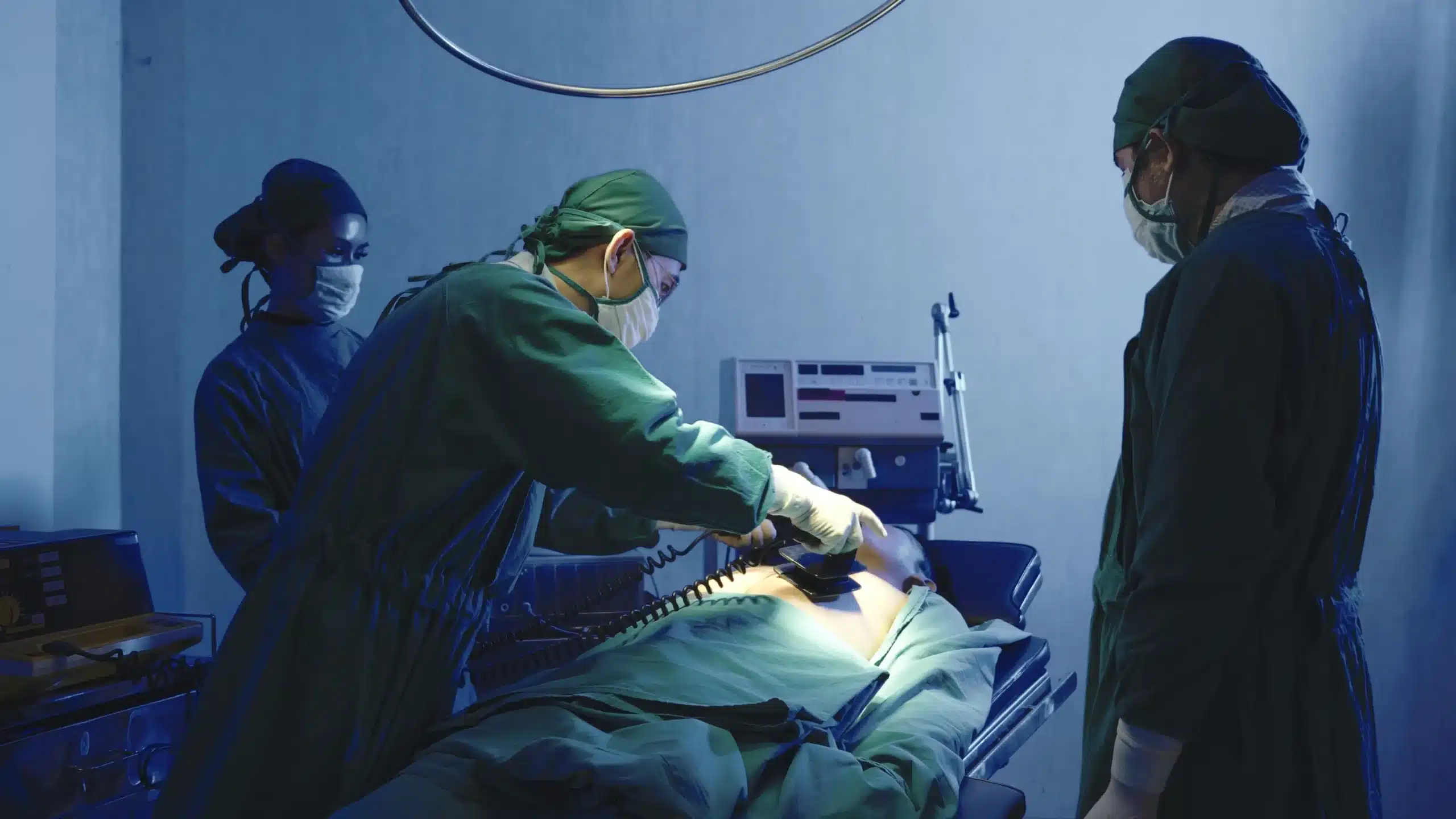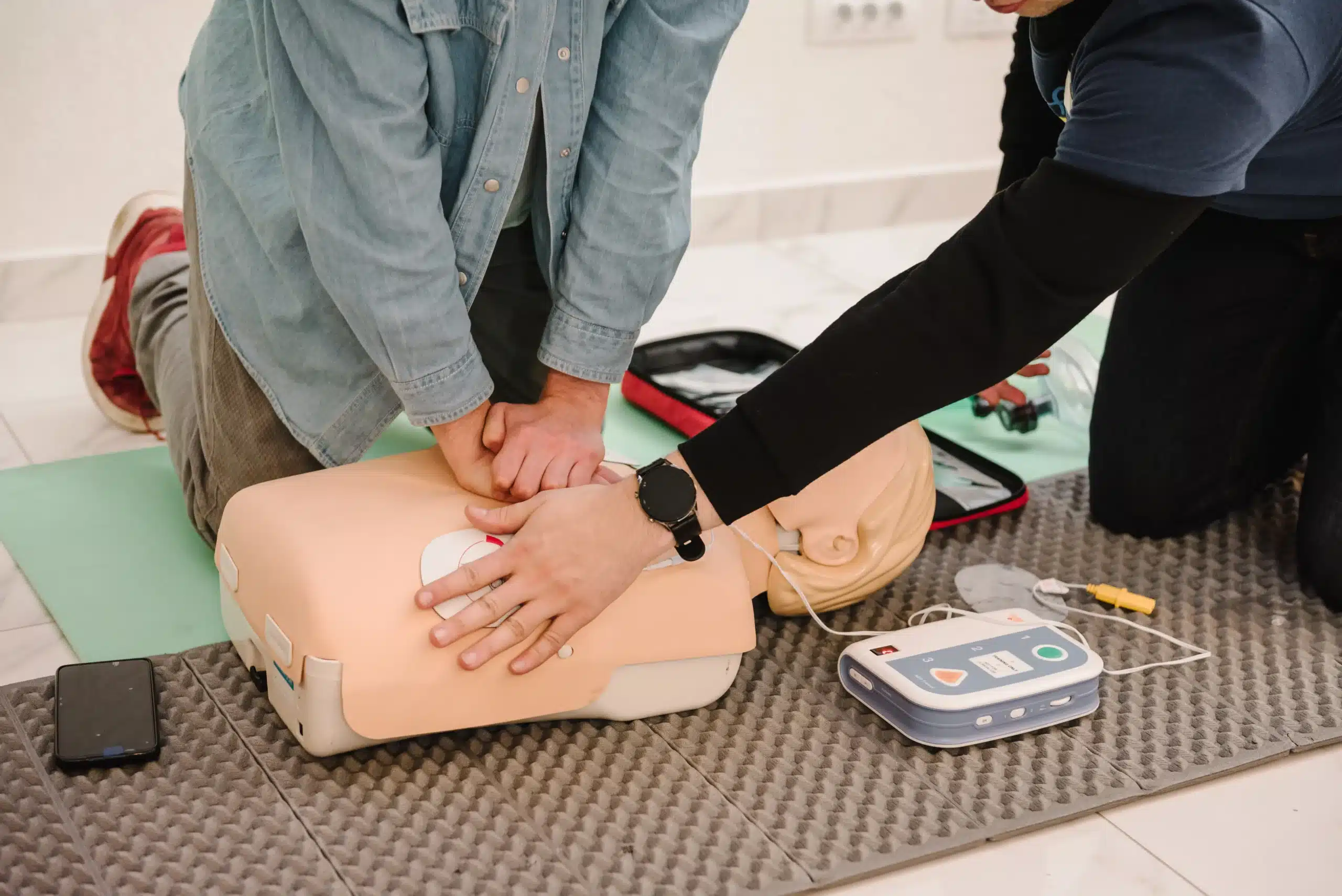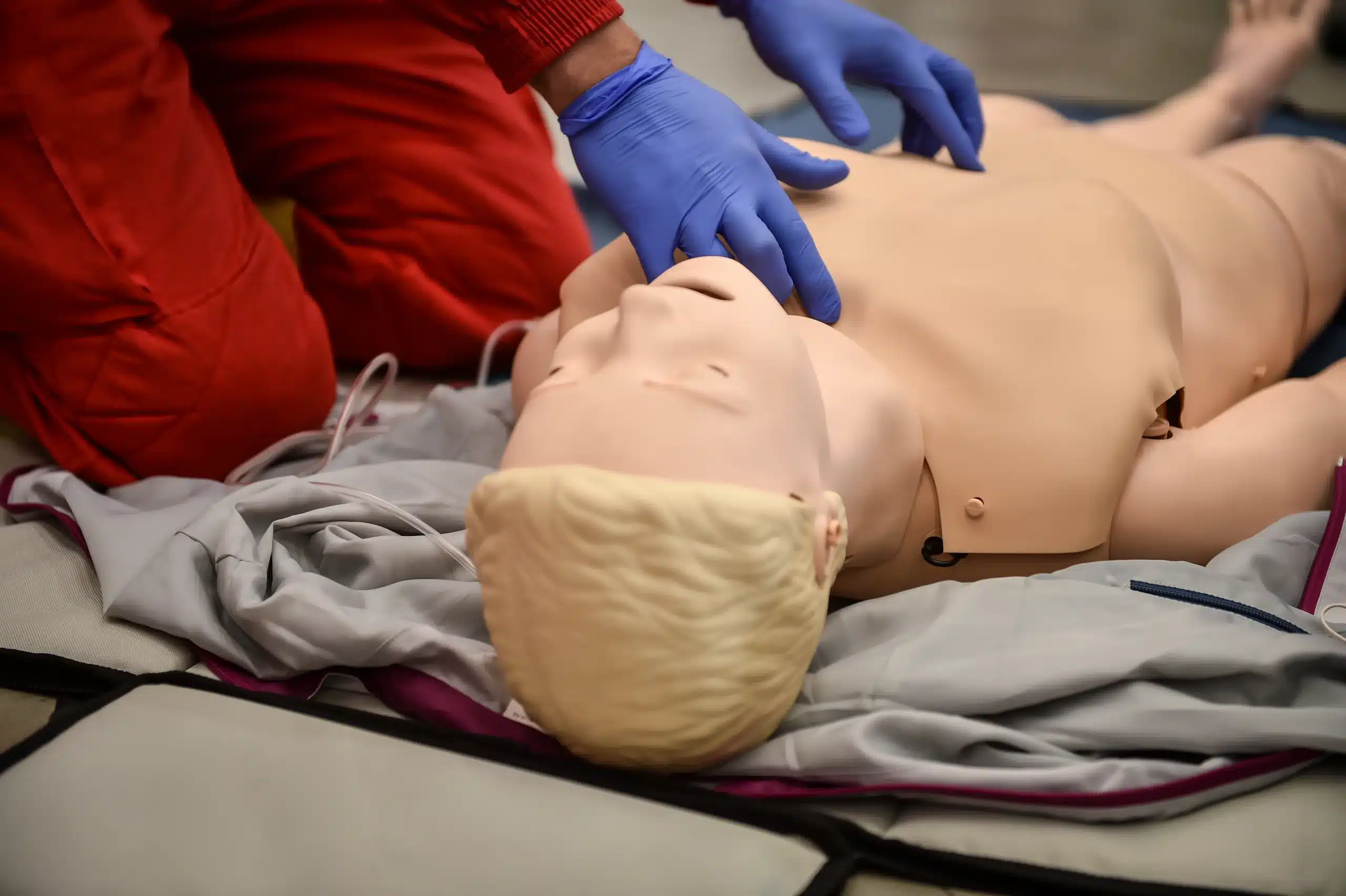Working in healthcare in Oakland means you’re on the front lines of patient care. You need to be prepared for anything, and that’s where BLS for healthcare providers in Oakland comes in. BLS certification equips you with the life-saving skills you need to handle emergencies effectively. This article is your comprehensive guide to BLS in Oakland. We’ll cover the essential skills taught in BLS courses, the importance of BLS for career advancement, and where to find top-rated training providers in Oakland. We’ll also delve into the costs of certification, compare BLS with standard CPR, and guide you through the renewal process. Finally, we’ll address common misconceptions about BLS certification and offer practical tips for choosing the right course and balancing training with your busy schedule.
Key Takeaways
- BLS is a must-have for healthcare professionals: It provides advanced life-saving skills beyond standard CPR, including AED use and airway management, essential for providing high-quality patient care in various healthcare settings. Stay current with the latest techniques through regular renewal.
- Finding the right BLS course is simpler than you think: Oakland offers various training options with flexible schedules to fit your busy lifestyle. Consider your learning style and choose between online, in-person, or blended learning formats. Compare providers based on class size, cost, and included materials.
- BLS certification opens doors: It’s a key requirement for many healthcare jobs and demonstrates your commitment to professional growth and patient well-being. Maintaining your certification enhances your career prospects and contributes to a safer healthcare environment.
What is BLS for Healthcare Providers?
BLS, or Basic Life Support, is a critical certification for healthcare professionals like doctors, nurses, EMTs, and other first responders. It provides training in life-saving techniques that go beyond standard CPR for adults, children, and infants. BLS focuses on recognizing and responding to life-threatening emergencies, such as cardiac arrest and respiratory distress. It equips healthcare providers with the skills to manage airway obstructions and provide high-quality chest compressions. This specialized training ensures they can deliver immediate and effective care in critical situations. For those seeking more information, the American Heart Association offers resources on BLS courses.
Key BLS Skills
BLS training covers essential skills, including high-quality CPR for victims of all ages, using an AED (Automated External Defibrillator), and relieving airway obstructions. The program emphasizes real-world scenarios, providing opportunities for hands-on practice and simulations. Participants learn to assess a patient’s condition quickly, make critical decisions under pressure, and work effectively as a team. Smaller class sizes, like those offered at Safety Training Seminars, allow for personalized instruction and feedback, ensuring each participant masters these vital skills. This focus on practical application prepares healthcare providers to respond confidently and competently in emergencies. You can explore CPR courses in Oakland for more details on local training options.
Why Healthcare Professionals Need BLS
BLS certification is often a prerequisite for employment in many healthcare settings. Hospitals and other medical facilities require their staff to maintain current BLS certification to ensure patient safety and provide a high standard of care. This certification demonstrates a commitment to ongoing professional development and the ability to handle emergencies effectively. Continuous training, such as BLS renewal courses, keeps skills sharp and knowledge current, allowing healthcare providers to adapt to evolving best practices. This empowers them to respond swiftly and confidently in critical situations, ultimately improving patient outcomes. The benefits of BLS certification extend beyond individual career advancement; they contribute to a safer and more effective healthcare environment. For nurses interested in the advantages of online BLS certification, resources are available to explore the benefits further.
Top Accredited BLS Providers in Oakland
Finding the right BLS training provider is crucial for healthcare professionals. Here’s a look at some reputable options in Oakland:
Safety Training Seminars
Safety Training Seminars is a woman-owned AHA Training Center offering high-quality American Heart Association BLS, ACLS, PALS, CPR, and First Aid courses right here in Oakland. They prioritize convenience, providing courses seven days a week in Oakland and surrounding areas, making it easier for busy professionals to fit training into their schedules. They also offer EMSA Child Care Health and Safety training and group discounts.
American Red Cross
The American Red Cross in Oakland offers BLS certification and renewal training specifically designed for healthcare providers. They also provide instructor training for those interested in teaching BLS courses.
Oakland CPR Training Center
Oakland CPR Training Center offers American Heart Association CPR, BLS, ACLS, and PALS courses in Oakland. They emphasize the importance of CPR and First Aid training for handling medical emergencies, a practical focus for healthcare professionals.
ProMed Certifications
ProMed Certifications focuses on healthcare professionals, offering various BLS, ACLS, and PALS courses. Their courses are tailored to meet specific certification requirements, ensuring providers have the necessary skills and credentials.
CPR Certification Oakland
CPR Certification Oakland is an American Heart Association Certified Training Site providing BLS CPR certification in Oakland. Offering AHA-certified CPR and First Aid classes, they are a trusted option for healthcare professionals seeking BLS certification.
BLS Certification: Costs & Options
Getting your BLS certification is an investment in your skills and career. Let’s break down the costs and what you can expect to pay in Oakland.
Oakland Price Range
BLS certification costs in Oakland vary. You’ll find options ranging from around $65 to upwards of $100. For example, CPR Certification Oakland lists its AHA-certified CPR class at $64.95 and its CPR and First Aid combo course at $84.95. It’s always a good idea to check with a few different providers like Safety Training Seminars to compare pricing. They might have special offers or group discounts available.
Factors Affecting Cost
Several factors influence the cost of BLS certification. A provider’s reputation, the course content, included materials (like pocket masks), and whether you receive your certification card the same day can all affect the price. While cost is a factor, remember that BLS certification offers long-term value for your career. This article on BLS myths highlights the benefits of certification.
Discounts & Promotions
Look for discounts! Many organizations, including the Red Cross, offer promotions to make BLS training more accessible. You might find group, student, or healthcare worker discounts. These can significantly reduce the overall cost. Check if your employer offers any reimbursement programs for professional development courses like BLS.
Course Length & Formats
BLS courses in Oakland offer flexible scheduling. You can find classes that take as little as 4.5 hours. CPR Certification Oakland advertises classes around three hours long. This flexibility lets you choose a course length and format that fits your schedule. Look for weekend or evening classes to accommodate work commitments. Some providers may also offer blended learning options with online coursework and in-person skills sessions.
BLS vs. CPR: Key Differences
BLS Compared to Standard CPR
CPR (cardiopulmonary resuscitation) teaches the basics of chest compressions and rescue breaths. It’s a valuable skill for anyone, from parents and teachers to office workers and construction crews. BLS (Basic Life Support) builds on those core CPR skills, adding techniques critical for healthcare professionals. Think of BLS as the next level, specifically designed for those working in hospitals, clinics, or emergency response. The American Red Cross details the differences between these two certifications.
Advanced BLS Techniques
BLS certification covers more situations than standard CPR. You’ll learn to use an automated external defibrillator (AED), a device that can help restore a normal heart rhythm during cardiac arrest. BLS also includes airway management techniques, like using a bag-valve mask for assisted breathing, and how to help someone who is choking. These advanced skills are essential for healthcare providers facing complex medical emergencies.
Why BLS Matters for Healthcare Providers
For healthcare professionals, BLS certification is a must-have. Hospitals and other healthcare facilities require their staff to maintain current BLS certification. It’s fundamental to ensuring patient safety and providing high-quality care. Ongoing BLS training keeps healthcare providers’ skills sharp and ensures they’re prepared for emergencies. It also demonstrates professional development and staying up-to-date with life-saving techniques. If you’re a healthcare provider in Oakland, maintaining your BLS certification is crucial for your career and your patients’ well-being.
What Happens in a BLS Course?
This section covers what you can expect during a BLS course, from the skills you’ll gain to the certification process. Understanding these elements will help you feel prepared and confident going into your training.
Skills You’ll Learn
BLS classes equip you with the skills to respond to life-threatening emergencies. You’ll learn how to perform high-quality CPR and use an AED on adults, children, and infants. The curriculum also covers relieving obstructed airways and recognizing the signs of someone experiencing a cardiac or respiratory emergency. These courses often incorporate real-life emergency scenarios to help you apply your knowledge effectively. You can explore more information on CPR and First-Aid certification.
Hands-on Practice
BLS courses aren’t just lectures; they emphasize hands-on practice to build your muscle memory and confidence. You’ll work with instructors in small groups, allowing for personalized feedback and support. This practical training involves demonstrating your skills with CPR, AED use, and airway management techniques. You’ll practice until you can perform these skills proficiently, ensuring you’re ready to respond effectively in a real emergency. Group discounts are available for those interested.
Assessment & Certification
After completing the hands-on practice, you’ll be assessed on your skills. Successful completion earns you an American Heart Association BLS CPR card, valid for two years. This certification demonstrates your competence in providing basic life support. Maintaining current certification is crucial for healthcare professionals. Learn more about BLS renewal courses.
Renew Your BLS Certification
Keeping your BLS certification current is essential for any healthcare provider. This section covers everything you need to know about renewing your BLS credentials in Oakland.
Renewal Requirements & Timeframe
BLS certification is valid for two years. To maintain your credentials and stay up-to-date with the latest life-saving techniques, you’ll need to renew every two years through an accredited provider like the American Heart Association. Mark your calendar and plan for your renewal course in advance to avoid any lapse in your certification.
Update Your Skills
Beyond fulfilling requirements, renewing your BLS certification offers valuable opportunities to refresh and refine your skills. Regular training reinforces best practices for CPR, AED use, and other essential life-saving interventions. Consistent training improves healthcare providers’ confidence and proficiency in these critical skills, ultimately leading to better patient outcomes. Safety Training Seminars offers BLS renewal courses designed to keep your skills sharp.
Online vs. In-Person Renewal
When it’s time to renew, you have options. Both online and in-person BLS renewal courses are available in Oakland through providers like Safety Training Seminars. Online renewal offers flexibility, allowing you to complete the coursework at your own pace. In-person training provides hands-on practice and direct interaction with instructors. Consider your learning style and schedule when deciding which format best suits your needs. Many providers, including the AHA, offer blended learning, combining online modules with in-person skills sessions for a balance of flexibility and hands-on learning. Explore different course formats to find the right fit.
Choose the Right BLS Course in Oakland
Choosing the right BLS course can feel overwhelming with so many options available. This section breaks down key factors to consider, ensuring you find the perfect fit for your needs and schedule.
Factors to Consider
Think about your learning style and how you best absorb information. Do you thrive in a traditional classroom with face-to-face interaction? Or do you prefer the flexibility of online learning? Many providers offer blended learning, combining online modules with in-person skills sessions. Consider the course length and schedule. Some courses are condensed into a single day, while others are spread out over several sessions. Location is another important factor. Choose a training center that’s conveniently located and easily accessible. Finally, if cost is a concern, compare pricing between different providers. Safety Training Seminars, for example, offers a low price guarantee for their courses.
Questions to Ask Providers
Before committing to a BLS course, don’t hesitate to ask potential providers some clarifying questions. Inquire about the total course hours, the format (in-person, online, or blended), and the class size. A smaller class size often allows for more personalized instruction and feedback. Ask about the instructor’s experience and qualifications. Are they certified American Heart Association instructors? Also, confirm what’s included in the course fee. Does it cover the cost of the textbook, certification card, and any other materials? Finally, ask about their refund policy in case your plans change.
Evaluate Course Quality & Accreditation
Ensure the course you choose meets industry standards and is recognized by reputable organizations. Look for providers accredited by the American Heart Association (AHA). Safety Training Seminars is a woman-owned AHA Training Center offering various courses, including BLS. Verify that the certification you receive will be accepted by your employer or licensing board. You can also check online reviews and testimonials from previous students to get a sense of their experience with the provider. Finally, confirm that the provider offers the most current BLS guidelines and training materials. Staying up-to-date with the latest resuscitation techniques is crucial for providing effective patient care.
BLS Certification & Your Career
For healthcare providers in Oakland, BLS certification is more than just a credential—it’s a career cornerstone. It opens doors, fulfills essential employer requirements, and demonstrates your commitment to high professional standards.
Job Opportunities
Basic Life Support (BLS) certification significantly enhances your job prospects in healthcare. Whether you’re a medical student, a seasoned professional, or just starting out, a current BLS certification shows you’re prepared to handle critical situations and provide crucial patient care. It’s a sought-after qualification for roles in hospitals, clinics, nursing homes, and other healthcare settings. American Health Training points out that BLS certification is a critical skill, though often misunderstood. This certification can give you a competitive edge and broaden your career options.
Employer Requirements in Oakland
In Oakland, most healthcare employers require BLS certification. This reflects the importance of a workforce prepared for medical emergencies. Project Heartbeat emphasizes that most healthcare providers must complete this training. Understanding these requirements is crucial for anyone seeking healthcare employment in Oakland. Maintaining a valid certification is equally important. CPR Certification Plus clarifies that AHA BLS CPR cards are valid for two years, highlighting the need for regular renewal.
Maintain Professional Standards
BLS certification demonstrates your commitment to professional standards. It shows you prioritize patient safety and possess the skills to deliver timely and effective care in emergencies. Medtigo underscores the importance of BLS certification for all healthcare professionals. Beyond individual career advancement, BLS certification contributes to a safer community. Bay Area CPR highlights how these programs create a more prepared and responsive community. By staying up-to-date with your BLS certification, you demonstrate your dedication to providing high-quality care and contribute to a safer environment for everyone.
BLS Certification: Common Myths
Let’s clear up some common misconceptions about BLS certification. These myths can create unnecessary roadblocks for healthcare providers seeking this essential training.
Debunking Time Commitment Myths
One of the biggest myths surrounding BLS certification is the idea that it requires a huge time commitment. Many healthcare professionals juggle demanding schedules, and adding another training can feel overwhelming. The good news is that BLS courses are designed to be efficient. You can often complete a BLS course in just a few hours, allowing you to fit training into your busy schedule without major disruptions.
Addressing Cost Concerns
Another common myth is that BLS certification is expensive. While there are costs involved, it’s important to weigh them against the long-term benefits. Think of BLS training as an investment in your career and your patients’ safety. Many providers, including Safety Training Seminars, offer competitive pricing and group discounts, making BLS certification accessible.
Clarifying Renewal Requirements
It’s true that BLS certification isn’t a one-and-done deal. You’ll need to renew your certification every two years to stay up-to-date with the latest guidelines and maintain your skills. This ensures you’re always prepared to provide the best possible care. Check with your certifying body or employer for specific renewal requirements. Many providers offer streamlined renewal courses to make the process as smooth as possible.
BLS Course Schedules for Healthcare Providers
As a healthcare provider in Oakland, your schedule can be demanding. Finding time for essential training like Basic Life Support (BLS) can feel challenging. Thankfully, many providers understand this and offer flexible course schedules to meet your needs.
Weekday & Weekend Classes
Many training centers in Oakland, including Safety Training Seminars, offer BLS certification courses seven days a week. This flexibility allows you to choose a class that works around your shifts and personal commitments. Whether you’re free on a Monday morning or a Saturday afternoon, you can find a BLS class that fits your availability. This range of options makes it easier to prioritize this crucial training. Some providers also offer evening classes for those working non-traditional hours. Check with your chosen provider for specific BLS course schedules.
Accommodating Shift Work
We know healthcare doesn’t stop, and neither do your shifts. The best BLS training providers understand the demands of this type of work. Look for courses designed with healthcare professionals in mind, like the American Heart Association’s RQI program. These programs often feature shorter, more frequent sessions that can be more easily integrated into a rotating schedule. This approach helps you maintain your skills and stay current with your certification.
Balance Training & Work
Balancing work commitments with essential training like BLS is crucial. Look for providers who offer blended learning options. These courses often combine online modules with shorter in-person skills sessions. This format allows you to complete some of the coursework at your own pace, reducing the time required for in-person training. Prioritizing BLS training ultimately benefits both you and your patients.
Related Articles
- BLS Training in Alameda: The Ultimate Guide – Alameda CPR Classes
- BLS CPR Courses in Alameda, CA – Alameda CPR Courses
- Why CPR is Important in Healthcare – Alameda CPR Classes
- AHA ACLS Classes in Alameda, CA – Alameda CPR Classes
Frequently Asked Questions
How long does it take to get BLS certified?
BLS courses are designed to be efficient and can often be completed in a single day, sometimes in as little as 4.5 hours. The actual duration will vary depending on the specific course and provider you choose.
What’s the difference between BLS and CPR certification?
CPR teaches basic life-saving skills like chest compressions and rescue breaths, while BLS builds upon those skills with techniques specifically for healthcare providers. BLS includes training on AED use, airway management, and team dynamics during emergencies. It’s a more advanced certification designed for professionals in healthcare settings.
How much does BLS certification cost in Oakland?
The cost of BLS certification in Oakland typically ranges from $65 to $100, but prices can vary based on the training provider, course materials, and any included extras like same-day certification cards. It’s always a good idea to compare prices from different providers and inquire about potential discounts.
How often do I need to renew my BLS certification?
BLS certification is valid for two years. To maintain your credentials and stay current with the latest guidelines, you’ll need to take a renewal course before your current certification expires.
What if my work schedule makes it hard to attend a BLS course?
Many BLS training providers in Oakland offer flexible schedules, including weekday, weekend, and evening classes, to accommodate the demands of healthcare professionals. Some providers also offer blended learning options that combine online coursework with shorter in-person skills sessions, making it easier to fit training into a busy schedule.


